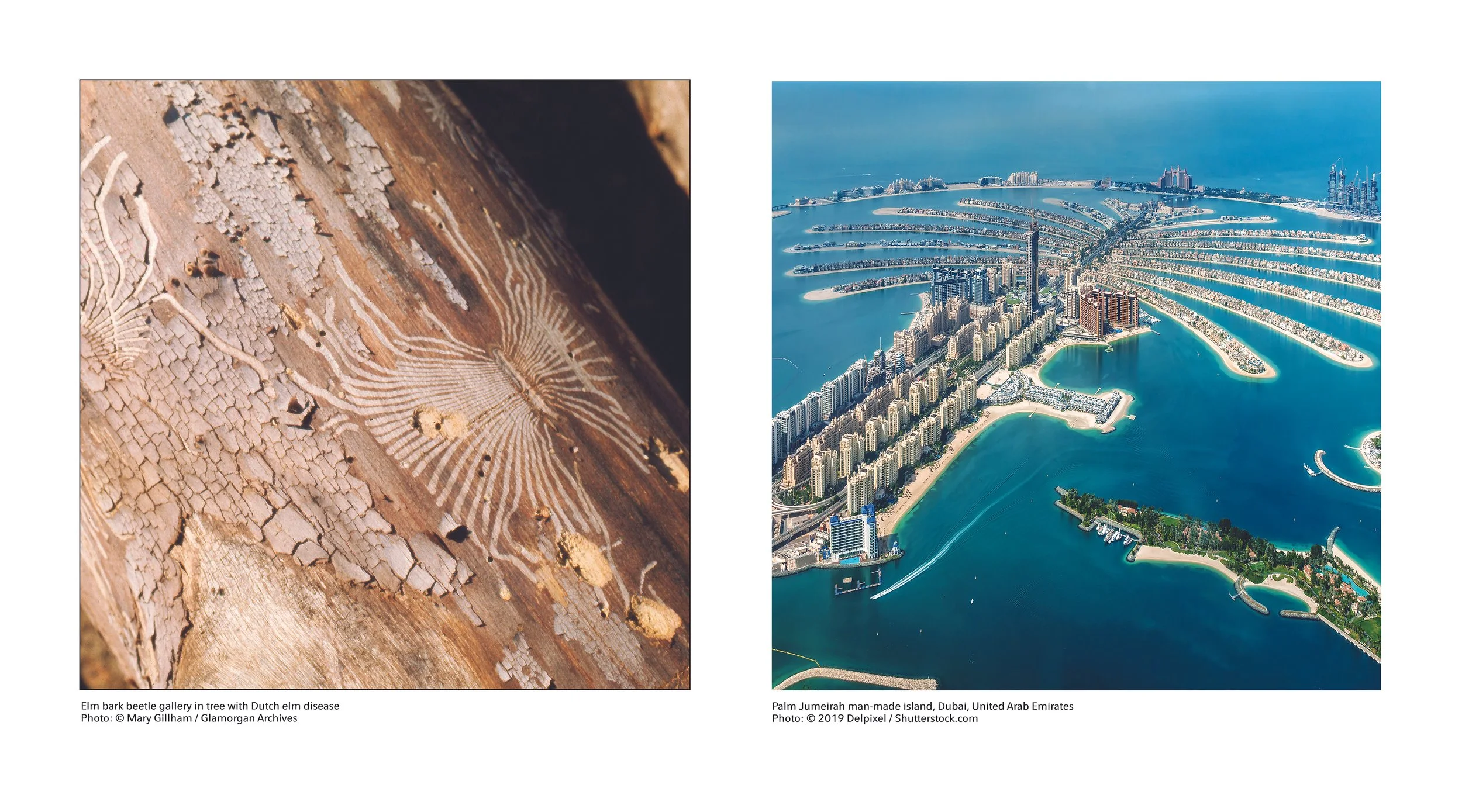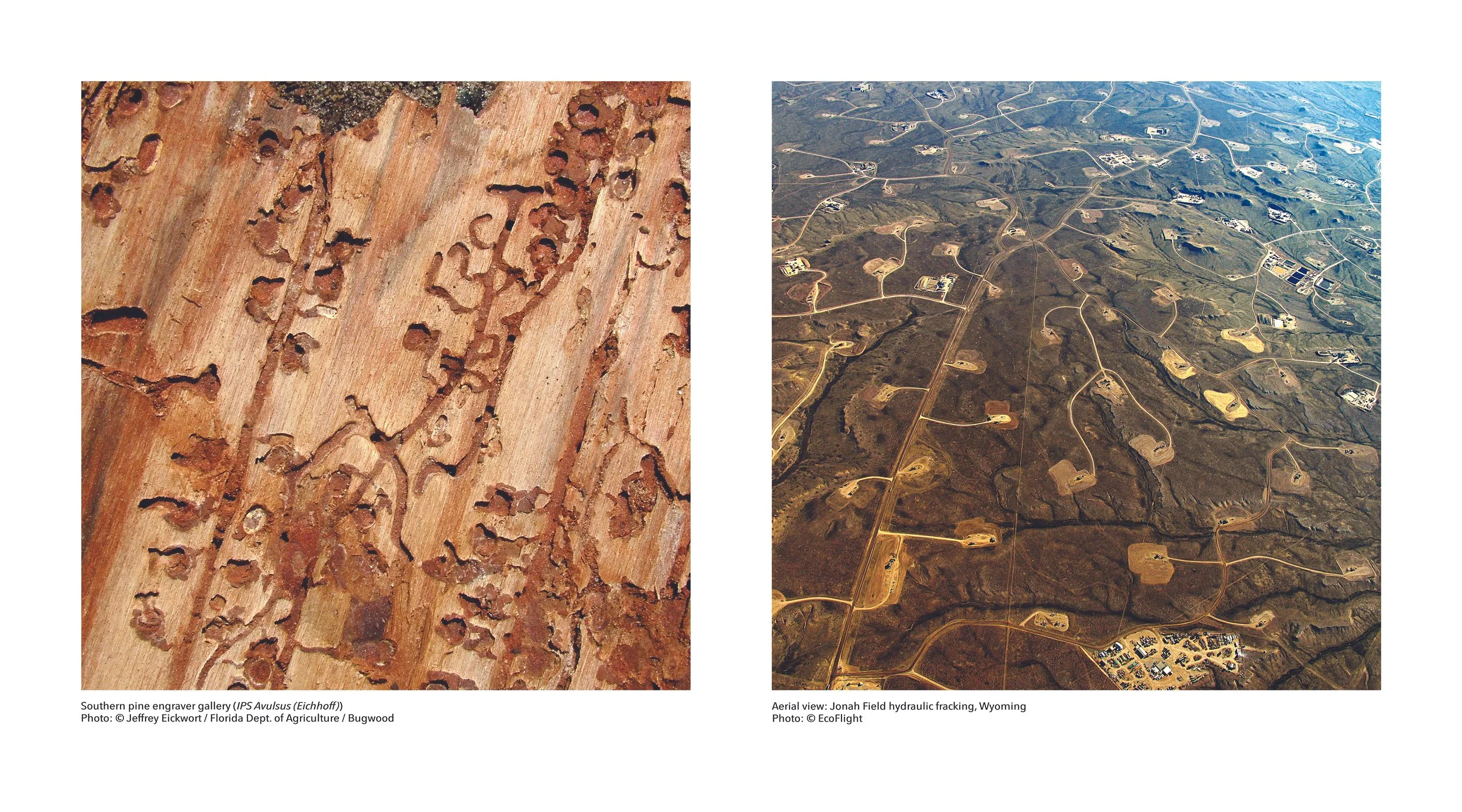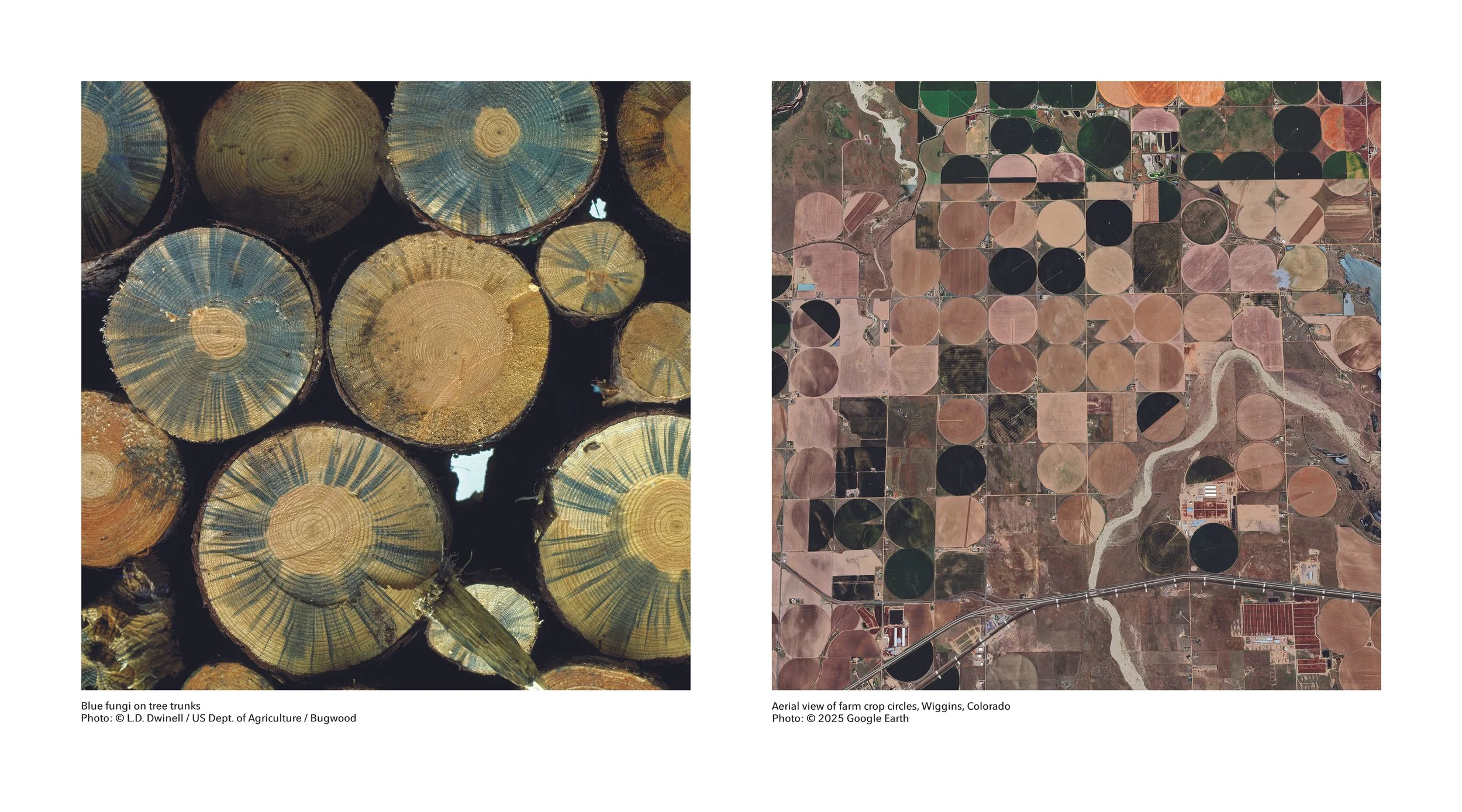
I had just finished reading a book
about bark beetles and and their impact on forests. On a flight from Ohio to Colorado, I looked out the plane window, and noticed similarities between the beetle’s patterns and the miniature earth below.
Curious, I dug deeper and was shocked to discover how closely human patterns mirror those of bark beetles.
Bark beetles are really cool creatures and they are essential in a healthy forest. But when a forest is under stress from drought and warmer temperatures, the population of beetles increases. As they eat and tunnel under the bark they kill the tree, and then the forest. The dead trees become a fuel source for forest fires.
The beetle destroys not only its home, but itself.
Looking out of the plane window, I wondered if humans weren’t doing the same.

Can humans choose differently?
BARK BEETLES. Bark beetles are marvelous creatures. They are well organized with complex systems and modes of communication. One of their primary jobs is to find the stressed tree in a forest and take it down to make room for new growth. They are exceptionally good at what they do.
With warmer nights and dryer days the entire forest is stressed. The beetles keep eating. At some point, they’ve gone too far and they destroy their home. Is the beetles fate a harbinger of our own?
HUMANS. Humans are marvelous creatures who are well organized with complex systems and modes of communication. We are extraordinary builders and problem solvers; we’re exceptionally good at what we do.
While bark beetles are hungry for tree bark. Humans are hungry for convenience, variety, warm homes, iced drinks, hot showers, new outfits, hot meals, easy transportation. All of these things burn carbon, putting us at risk, like the beetle, of destroying our home, the earth.
Voracious Appetites - Eating the Host®
A museum exhibition that explores human patterns through a fine art lens

Voracious Appetites - Eating the Host® explores the parallel ways that bark beetles and humans voraciously consume their hosts and environments.
The exhibit showcases stunning large-scale professional photography pairs by respected photographers and scientists, providing a powerful and illuminating perspective.
Every time we heat or cool a room, dry clothes, or use transportation, we are burning carbon. Carbon is burned in the manufacturing of clothing, in food production, and home construction. We are taking advantage of the Earth, our very generous host - but she is getting tired.
What if by transforming the way we think about our appetites for convenience, comfort, and status, we were able to generate greater meaning and purpose in our lives.
Voracious Appetites can stand alone or be part of your curated exhibit on:
Climate,
Human consumption,
Interesting patterns,
Bark beetles,
Aligning toward a greater good.
A new trajectory for the future
We are stepping into a new era where our energy and strength can be in service to something greater.
While the old paradigm drew power from fear, the new path embraces love and the wisdom of the heart.
Many creatures live in harmony with the earth, taking only what they need and nothing more. What if humans did the same?

Voracious Appetites uses creative visual connections to invite personal and interactive reflection.
-
Voracious Appetites helps us to contextualize the deep impacts each of us make in our daily lives on the region in which we live and the planet which is our host.
Dr. Scott Denning, Atmospheric Scientist
-
The hourglass is emptying. The sooner we recognized that the cleverness of our species can be both the problem or the solution, the better.
David Leatherman, Forest Entomologist
-
This project tackles one of the most pressing issues of our time in an accessible fashion. The possibilities for learning and engagement across so many fields make for an exciting roster of programming utilizing local experts and community members.
Lisa Hatchadoorian, Executive Director Internal Affairs, MoA | Fort Collins
-
Voracious Appetites offers a culturally relevant experience that harnesses the visual arts to transform the viewer’s capacity for agency in the climate crisis.
Jeanne Shoaff, Arts Professional
-
Nowhere before have I seen such an impactful approach to raising awareness of the extent and urgency of recognizing society ’s consumption pattern than what Jennifer is compiling through the Voracious Appetites initiative.
Frenchy Morisette, PhD in Forestry
-
Jennifer’s project is timely, relevant, and will demonstrate that the arts have a voice in society, speaking in ways that other methods do not.
Joy Nyenhuis, Community Member
Museum and art center inquiries:
Email: Jenny1032@gmail.com
Text: 970-402-6683
Fort Collins, CO 80524






